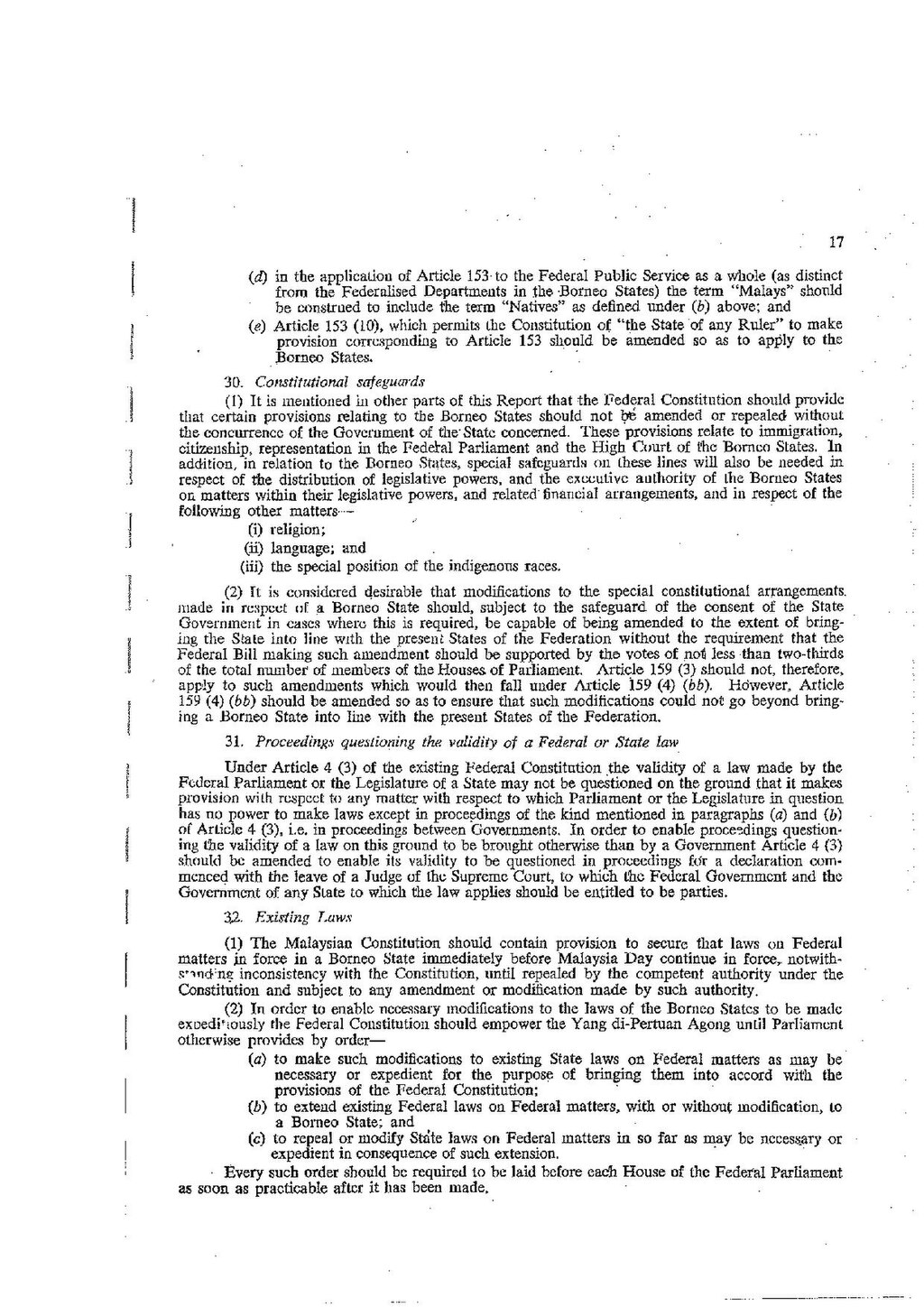30. Constitutional Safeguards
(1) It is mentioned in other parts of this Report that the Federal Constitution should provide that certain provisions relating to the Borneo States should not be amended or repealed without the concurrence of the Government of the State concerned. These provisions relate to immigration, citizenship representation in the Federal Parliament and the High Court of the Borneo States. In addition, in relation to the Borneo States, special safeguards on these lines will also be needed in respect of the distribution of legislative powers, and the executive authority of the Borneo States on matters within their legislative powers, and related financial arrangements and in respect of the following other matters—
- (i) religion;
- (ii) language; and
- (iii) the special position of the indigenous races.
(2) It is considered desirable that modifications to the special constitutional arrangements made in respect of a Borneo State should, subject to the safeguard of the consent of the State Government in cases where this is required, be capable of being amended to the extent of bringing the State into line with the present States of the Federation without the requirement that the Federal Bill making such amendment should be supported by the votes of not less than two-thirds of the total number of members of the Houses of Parliament Article 159(3) should not, therefore, apply to such amendments which would then fall under Article 159 (4)(bb). However, Article 159 (4) (bb) should be amended so as to ensure that such modifications could not go beyond bringing a Borneo State into line with the present States of the Federation.
31. Proceedings questioning the validity of a Federal or State Law
Under Article 4(3) of the existing Federal Constitution the validity of a law made by the Federal Parliament or the Legislature of a State may not be questioned on the ground that it makes provision with respect to any matter with respect to which Parliament or the Legislature in question has no power to make laws except in proceedings of the kind mentioned in paragraphs (a) and (b) of Article 4(3), i.e. in proceedings between Governments. In order to enable proceedings questioning the validity of a law on this ground to be brought otherwise than by a Government Article 4(3) should be amended to enable its validity to be questioned in proceedings for a declaration commenced with the leave of a Judge of the Supreme Court, to which the Federal Government and the Government of any State to which the law applies should be entitled to be parties.
32. Existing Laws
(1) The Malaysian Constitution should contain provision to secure that laws on Federal matters in force in a Borneo State immediately before Malaysia Day continue in force, notwithstanding inconsistency with the Constitution, until repealed by the competent authority under the Constitution and subject to any amendment or modification made by such authority.
(2) In order to enable necessary modifications to the laws of the Borneo States to be made expeditiously the Federal Constitution should empower the Yang di-Pertuan Agong until Parliament otherwise provides by order—
Every such order should be required to be laid before each House of the Federal Parliament as soon as practicable after it has been made.
